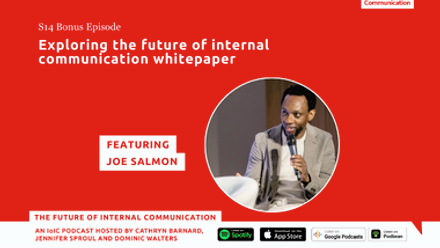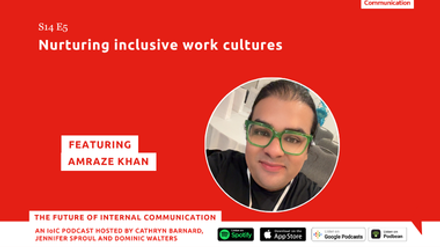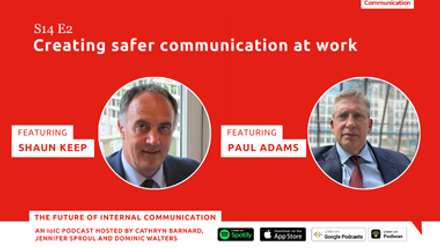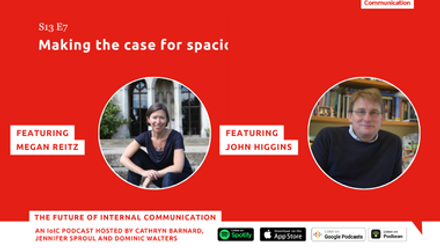The Cambridge Dictionary defines connection as: “the act of joining or the state of being joined to something else, or the part or process that makes this possible”.
I was looking up the meaning of the word ‘connection’ because, reading through this year’s State of the Global Workforce report from Gallup, the word kept coming to my mind when reflecting on the findings and thinking about our role as internal communicators in the changing workplace.
The report isn’t uplifting reading.
As artificial intelligence accelerates across industries, transforming everything from operations to communication, the human foundations of the workplace—employee engagement and wellbeing—are showing signs of deep strain.
Global employee engagement and employee wellbeing have generally risen over the past decade, but both fell in 2024, which has implications for corporate productivity, innovation and performance.
Employee engagement fell to 21% and the proportion of actively disengaged employees, those who are not only unhappy at work but potentially undermining their organisations, rose to 17%.
Employees are reporting high levels of stress (40%), anger (21%), sadness (23%), and loneliness (22%). Europe has the lowest engagement score (13%) and high levels of stress and anger.
Gallup says that the root cause of disengagement is in the experiences of managers. In 2024, global manager engagement dropped from 30% to 27%. Young managers under the age of 35 were particularly affected. They saw a five-point decline in engagement, while the engagement of female managers plummeted by seven points.
Over two thirds (70%) of team engagement can be attributed to the manager. So if managers are disengaged, their teams are likely to be too.
The report says that the reality of modern managers is “psychological pressure”, struggling with reduced resources, organisational instability and an increasingly dispersed workforce. Managers are juggling conflicting demands from leadership and employees, all while adapting to new technologies and maintaining team cohesion in hybrid and remote work settings.
As I said, it’s not the happiest of reading.
But without sounding too much of a ‘Pollyanna’ the report does talk about some promising ways forward.
Gallup say that when organisations invest in manager development and build their growth strategy around great management, the result is better customer service and higher productivity, as well as higher sales and profits and increased engagement.
It says there are three clear strategies to create a more engaged, productive, and resilient workforce.
First, organisations should ensure all managers receive fundamental training to reduce extreme disengagement. Second, they should invest in coaching programmes to help managers become more effective in developing their teams. Third, they must support ongoing development and wellbeing initiatives to improve managers’ own life satisfaction and performance.
And then there’s AI. The 2025 report closes with a powerful message: the world is standing at the edge of a new era of work. AI is already transforming work and risks severing the human connections that underpin great teams—unless organisations actively foster those connections.
Which is where I believe IC can contribute its experience and value.
We’re the great connectors in an organisation. A key part of our role is to ‘join the dots’ and to own the process that makes connection possible.
From the channels we own and improving the efficiency and reach of the platforms and tools that we all use, to the human relationships across the business that we build and nurture.
We’re skilled at listening, at harnessing and collating employee voice – and we’re usually not shy of ‘speaking truth to power’ when it is valuable feedback.
And we can help managers and leaders be better communicators, whether that’s advising on or creating clear, shareable business information, to even putting together a best practice comms basic toolkit.
“Let this report be your road map—and a call to action—as you navigate the opportunities and challenges ahead,” writes Jon Clifton, CEO of Gallup, in the report.
His words are aimed at leaders, asking them to address the challenge and create workplaces that help people thrive, but his words equally apply to us.






